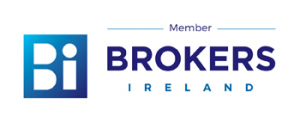In this month’s Construction Magazine, Darragh looks at the impact of taxes on your retirement.

As the oft-quoted phrase goes, “nothing can be said to be certain, except death and taxes” – and tax in retirement is no different. There is good news, however and with careful planning, you can reduce your tax burden in retirement by making the most of the exceptions and tax relief available.
In order to encourage people to save for their future, we receive valuable incentives from the government in the form of tax relief. It is one of the most compelling reasons to save for your future. Other forms of savings do not attract the same generous incentives. Each contribution made to a retirement savings scheme benefits from tax relief based on the rate of income tax you pay (this is typically either 20% or 40%). You also receive tax-free growth on the investment gains within the pension and a tax-free lump sum at retirement. However, there are some taxes that must be paid on pension income you receive once you have retired.
No escaping the inevitable
Retirement income is treated the same as regular income so income tax is levied on it. There really is no escaping tax in some form. Part of my role in Milestone Advisory is to demystify the tax treatment of pensions and ensure my clients’ pensions are taxed correctly and are benefitting from all available tax credits.
Retirement income includes a pension (guaranteed income for life), withdrawals made from an Approved Retirement Fund (ARF) or Vested PRSAs. The Revenue Commissioners will calculate the correct rate of income tax that you should pay on your pension. Life companies are obliged to deduct income tax at the highest rate (currently 40%), until they receive a Tax Credit Certificate from the Revenue Commissioners to tell them what rate they should deduct from your pension income.
Other forms of tax include:
- PRSI: You do not have to pay PRSI on annuity payments (guaranteed income for life). However, ARFs, Vested PRSAs, trivial pensions and taxable cash payments are liable to PRSI Class S (currently 4%) until age 66.
- Universal Social Charge (USC): This is calculated based on the full pension income amount. Depending on your personal circumstances, individual USC rates may apply.
Don’t rush to drawdown your pension
Once you access your pension lump sum (which could be tax free up to €200,000), there will be tax liable on the post retirement pension annuity or ARF/Vested PRSA income received. If opting for the ARF route at retirement, where the ARF owner reaches 61 years of age, an imputed distribution is calculated as a percentage (currently 4%) of the market value of assets in the ARF. The imputed distribution rises to 5% where the ARF owner reaches 71 years of age. This minimum distribution is subject to income tax.
If you delay accessing your pension fund, it may pass tax-free to your spouse, for example, in the event of your death. With an ARF, the fund will pass too, but your spouse will be liable to income tax on drawdowns from it. But with an intact pension fund (provided the related employment has ceased), no tax will apply.
Multiple Pension Pots with different providers?
If you have multiple pension pots, it is not always beneficial to combine them into one place. Having two or three different pensions from different employments can give some flexibility when it comes to retirement, where you can retire the funds at different times. This can allow access to a lump sum from one pension, for example, while maintaining another pension for later retirement.
If you have a defined contribution company pension, the retirement lump sum will depend on your circumstances and how long you have been working for the company. There will be cases where an individual can avail of the one and a half times salary lump-sum option where they could clean out the pension fund entirely, making the requirement to buy an annuity with the remaining funds a moot point. If this description fits you, it is worth considering this as a way of maximising tax savings on your pension.
Here to help you navigate your way to financial security.
 Careful planning before retirement can help minimise or even avoid some of the knock-on effects that taxes can create. This can be complex but will enable you to reap the well-earned rewards. For further information, get in touch with me via phone (01 406 8020) or email (darragh@milestoneadvisory.ie).
Careful planning before retirement can help minimise or even avoid some of the knock-on effects that taxes can create. This can be complex but will enable you to reap the well-earned rewards. For further information, get in touch with me via phone (01 406 8020) or email (darragh@milestoneadvisory.ie).
Milestone Advisory DAC t/a Milestone Advisory is regulated by the Central Bank of Ireland.
Warning: The value of your investment may go down as well as up.





